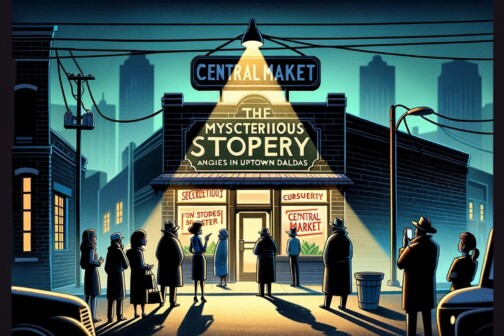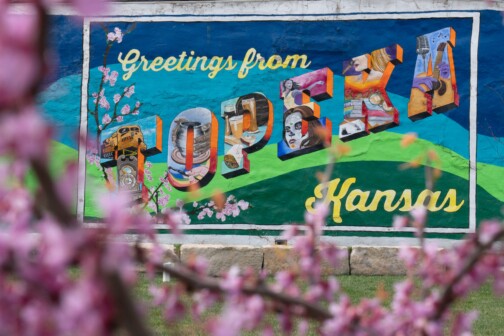Cuatro Corridos , an hour-long, four-scene opera for soprano, guitar, percussion, and piano, opened the fourth season of the Soundings new music series at the Nasher Sculpture Center Friday night. And as with all previous installments of this innovative series, the performance provided a completely engaging, stimulating, and thought-provoking evening. The streak of quality from Soundings was all the more remarkable considering that, in theory, a one-hour opera by four different composers (Hebert Váquez, Arlene Sierra, Lei Liang, and Hilda Paredes) shouldn’t work.
Cuatro Corridos is about the experiences of women involved in a horrifying and notorious human trafficking operation in San Diego during the late twentieth century. That ongoing narration provides a foundation that supported, and was, indeed, enhanced by four different musical styles. In shaping these stories into a poetic libretto, Mexican author Jorge Volpi employed a steady meter and stanza form inspired by north Mexican popular ballads (corridos) to provide another subtly unifying element.
Musically, the first and fourth acts were the most striking. Vásquez’s interweaving of folk-like melodies in the opening scene, “Azucena,” was both impressively complex and immediately appealing, while, in the fourth scene (“Vileta”), composer Paredes made convincing use of non-traditional timbres and instrumental techniques. Soprano Susan Narucki took on the monstrous challenge of the vocal part and portrayed four very different women beautifully. Guitarist Pablo Gomez, pianist Aleck Karis, and percussionist Ayano Kataoka likewise winningly navigated through the four different, demanding musical styles packed into one hour. The staging, featuring a mound of dirt-filled ladies’ shoes (likely a reference to Freud’s dream analysis of the shoe as a symbol of the vagina), was simple and effective. The lively, creatively designed projection of the English translation neatly solved the problem of integrating translation into the production.
Volpi’s libretto failed in one key point, however. The blame for the situation was placed almost entirely on Mexican men, without deeper exploration of the role U.S. policy and cultural attitudes played in creating a situation of human enslavement. The rape camps described in the opera existed and flourished in the U.S. By focusing on the role of a few Mexican male criminals in the operation, Volpi lets the North American audience off the hook, when he should have pointed a finger at us for the part we play in the oppression of the impoverished in our own country and around the world. In spite of some striking verbal imagery, the audience at the Nasher was allowed to remain guiltless and comfortable.
***
A visit to Bass Performance Hall in Fort Worth on Saturday evening, for the second of a trio of classical concerts by the Fort Worth Symphony, revealed a visiting conductor with a knack for bringing out the best in that orchestra. Taiwanese-born Mei-Ann Chen, who is music director of the Memphis Symphony, coaxed a beautiful, clean sound from the Fort Worth string section in a program including Mendelssohn’s “Scottish” Symphony and Dvorak’s Violin Concerto. Violin soloist Venjamin Beilman championed the Dvorak admirably, with a muscular, clear tone. Interestingly, conductor Chen kept the full entourage of strings in place for the concerto, rather than reducing the corps as is often the case, and Bielman blended with and, when appropriate, rose above the ensemble magnificently. Chinese-born An-Lun Huang’s Saibei Dance provided an engaging prelude to the larger works on the concert, as well as a taste of that composer’s traditionalist but lively style.





